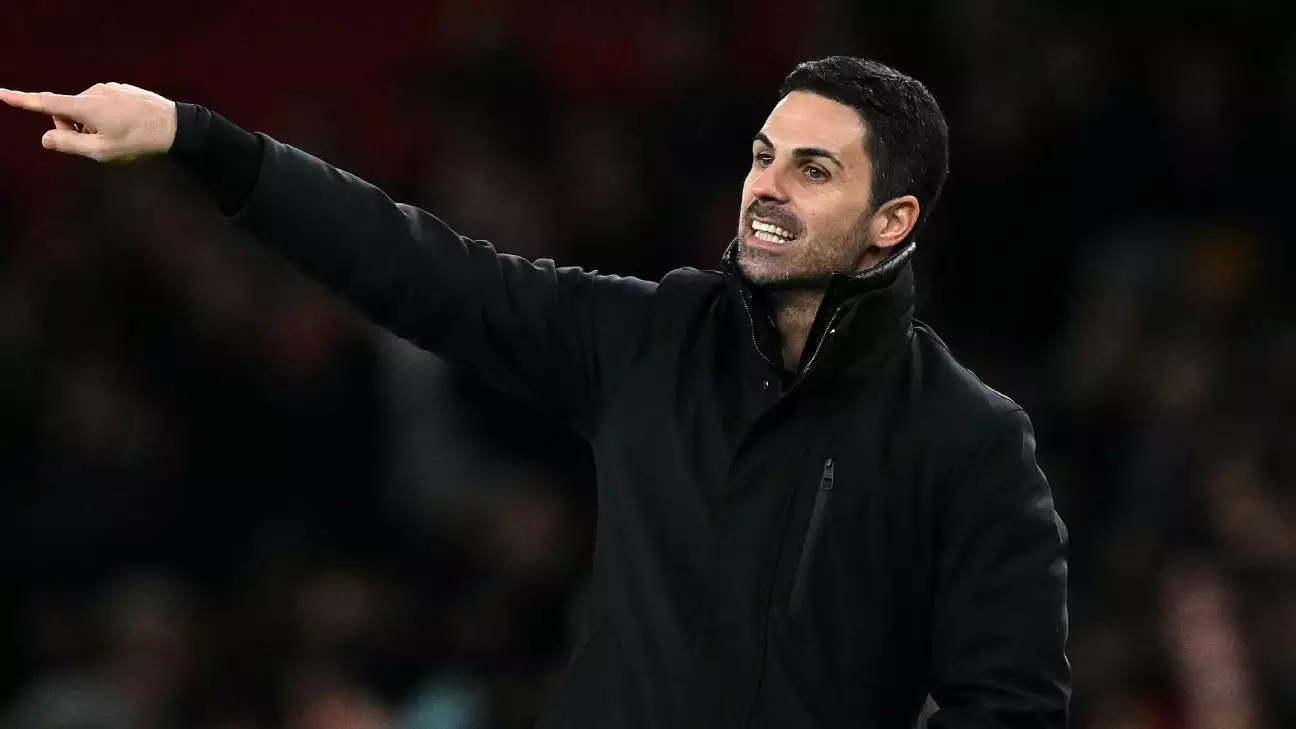Mikel Arteta’s Arsenal faced a disappointing 2-0 defeat in the first leg of the Carabao Cup semifinals against Newcastle United, raising questions about the team’s adaptability under pressure. Despite possessing an xG (expected goals) tally of 3.12—an impressive figure that theoretically suggests superior attacking performance—the Gunners were thwarted in front of goal by a combination of clinical Newcastle finishing and their own inability to convert opportunities. Goals from Alexander Isak and Anthony Gordon have given Eddie Howe’s team a significant advantage as they prepare for the return fixture on February 5.
Arteta pointed to the team’s struggle to adapt to the unique characteristics of the competition’s ball as a contributing factor to their shortcomings. The Puma ball, as opposed to the club’s habitual Nike ball, posed a challenge in terms of grip and flight dynamics, which might have hindered the players’ confidence. This situation isn’t merely a matter of preference; it reflects deeper psychological aspects affecting performance, particularly when opportunities are squandered. As a former player and assistant coach, Arteta understands the mental ramifications of repeated misses, suggesting that players may need support beyond mere technical adjustments.
The Challenges of Change
Arteta’s remarks about the ball’s differing nature highlight a fundamental truth about sports: familiarity breeds confidence. When players are accustomed to a specific type of equipment, their ability to execute is often enhanced. Last Tuesday, Arsenal appeared to struggle with this adjustment, indicating a lack of preparation or awareness regarding equipment variations. Arteta’s emphasis on using tips and discussions to improve performance points to a proactive approach in tackling these challenges. He articulated the necessity for players to adapt quickly, asserting that they will have to reconcile these issues before the next match.
The issue of adapting to competition-specific equipment also recalls a similar predicament faced by Pep Guardiola during his tenure with Manchester City. Guardiola’s remarks about the Mitre ball used in the 2017 Carabao Cup align with Arteta’s concerns, suggesting that this phenomenon is not new but rather an ongoing challenge within English football. The EFL has stated that their balls meet FIFA standards, yet perceptions of their usability often diverge from such endorsements. This inconsistency illustrates a broader problem within football—subjective player experiences can contradict technical specifications, leading to external communication hurdles.
Moving forward, it is crucial for Arsenal to cultivate resilience against such external factors. As they prepare for their next outing, a keen focus on mental fortitude and equipment acclimatization will be essential. The Gunners’ coaching staff must adopt holistic strategies to ensure players are equipped to handle both the physical and psychological pressures of the sport. Should Arsenal manage to resolve these issues and regain confidence, they can still turn the tide in the second leg and salvage their Carabao Cup aspirations.


Leave a Reply